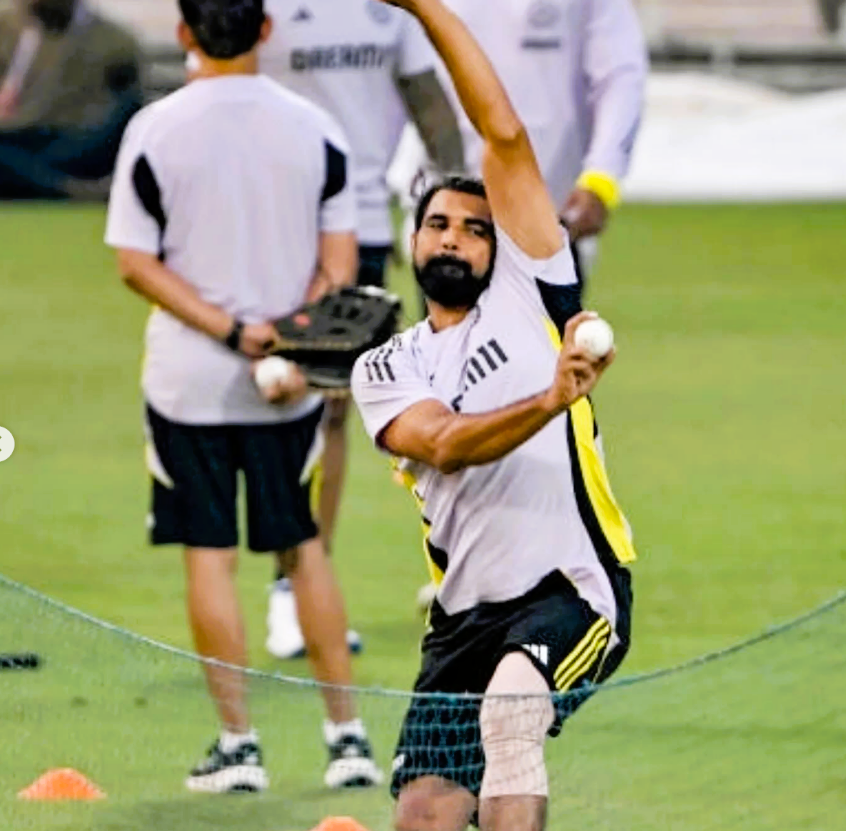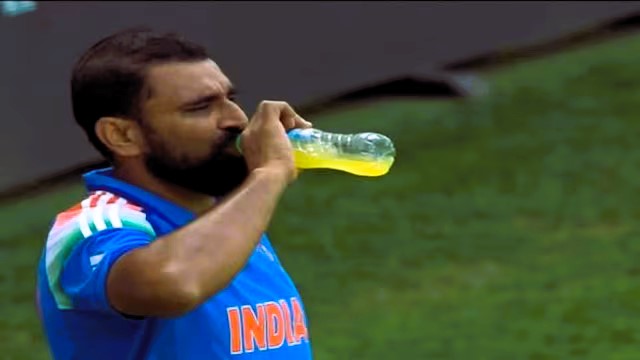In the sports world, athletes often find themselves torn between personal beliefs and professional commitments. A recent example of this is Indian cricketer Mohammed Shami, who became the centre of controversy during the ICC Champions Trophy 2025. The controversy started when Shami was seen drinking an energy drink during the match against Australia, which coincided with the holy month of Ramadan.
The Incident: Energy Drink Consumption During Ramadan
Shami was seen drinking an energy beverage on the field during the semi-final match between India and Australia on 5 March 2025. The act was criticised by some religious groups and raised questions about his observance of the prescribed fasting rituals during Ramadan.
Religious Criticism and Accusations
Maulana Shahabuddin Razvi Barelvi, president of the All India Muslim Jamaat, publicly criticised Shami and called him a “criminal” in the eyes of Sharia (Islamic law) for not fasting. He said that as a healthy person, Shami not fasting is a serious offence, especially when seen in public during a match.
Support from Family and Religious Scholars
On the contrary, Shami received ample support from his family and other religious scholars. His cousin Mumtaz defended him, saying that many athletes, including Pakistani players, do not fast while playing matches, stressing that Shami is representing the country and should focus on his performance.
Furthermore, Maulana Khalid Rashid Farangi Mahali of the All India Muslim Personal Law Board clarified that Islamic teachings exempt travelling or unwell individuals from fasting. Given that Shami was on a sports tour, he fell under these exemptions, and thus, no one had the right to question his personal religious practices.
Shami’s On-Field Performance Amidst the Controversy
Despite the controversy off the field, Mohammad Shami’s performance on the field was excellent. He played a key role in India’s victory against Australia and took three wickets for 48 runs in a spell of 10 overs. In the entire tournament, he took eight wickets in four matches and was among the highest wicket-takers.

Balancing Faith and Professional Obligations
The incident highlights the challenges athletes can face in balancing personal faith and professional duties. While religious observances such as fasting during Ramadan are important, Islamic jurisprudence provides flexibility for those who are traveling or ill, allowing them to postpone fasting. Shami’s situation highlights the importance of understanding and respecting individual choices, especially when they align with both religious exemptions and professional responsibilities.
For a deeper understanding of the controversy, you can check out the following news coverage:
Conclusion
The controversy surrounding Mohammed Shami’s drinking of an energy drink during Ramadan highlights the delicate balance between personal faith and professional commitments. It is a reminder of the need for empathy towards diverse interpretations of religious practices and individual choices. As Shami continues to focus on his cricketing endeavours, his experience inspires a wider discussion on respecting individual decisions in the public sphere.
Explore the recent controversy surrounding Indian cricketer Mohammed Shami’s drinking of an energy drink during Ramadan, examining the interplay between religious obligations and professional duties. Mohammed Shami drinking an energy drink during a cricket match amid the Ramadan fasting debate.
We invite readers to share their perspectives on striking a balance between personal beliefs and professional obligations. How should public figures deal with such situations? Join the conversation in the comments below and share this article to broaden the discussion.

